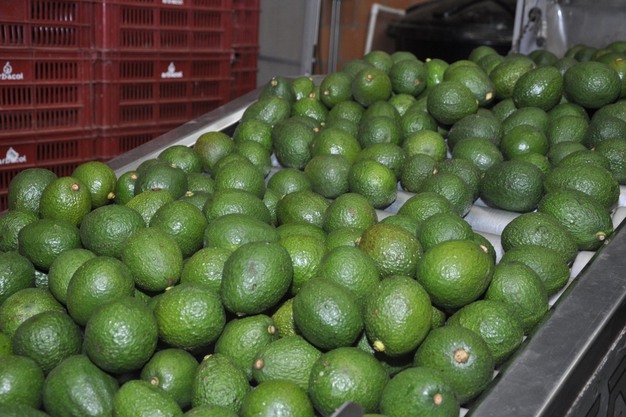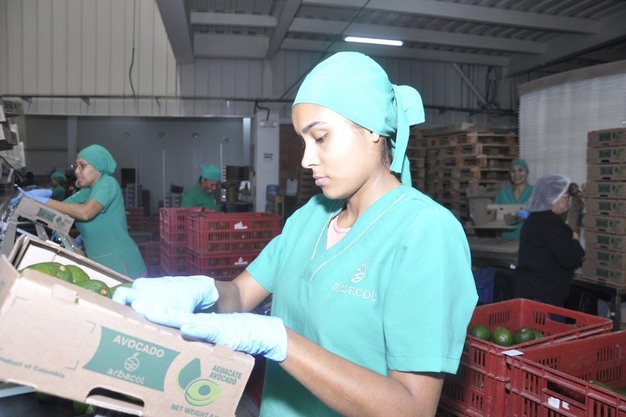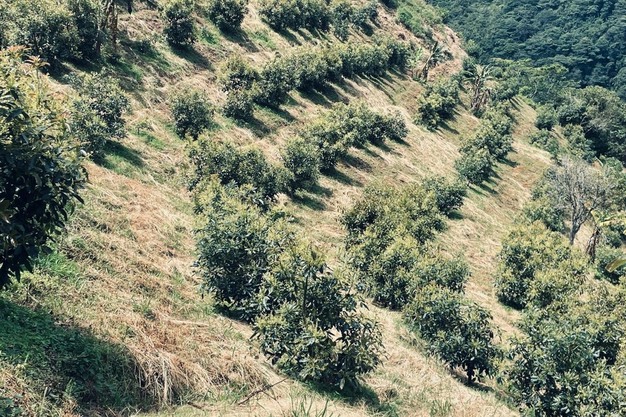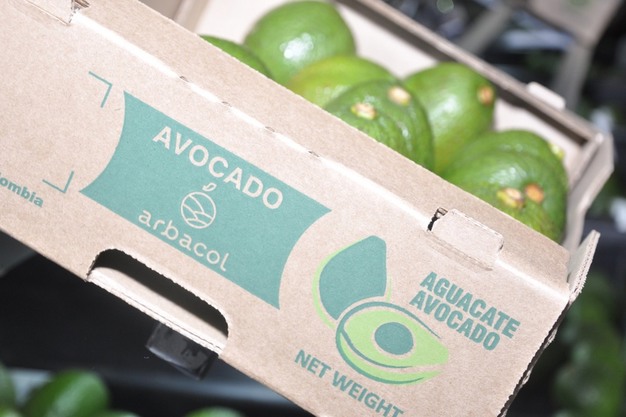"This is the first year in which we've had uninterrupted shipments from Colombia, maintaining weekly programs, and as Peruvian volumes increase, the supply is complemented with Danper Group's Peruvian fruit programs. While Peru's production peaks for around 12 to 14 weeks, Colombia offers continuous production 52 weeks a year, which represents a fundamental advantage for the Danper group, as it makes it possible to offer European supermarkets a stable fruit supply," says Segundo Mostacero León, general manager of Arba Colombia.
 © Arbacol
© Arbacol
Colombia has two production peaks: the main season, which represents between 60 and 65% of the volume, and the so-called "traviesa" season, which accounts for up to 40%. However, the country's mountainous landscape poses challenges in terms of logistics and costs. "Unlike Peru, where large extensions of flat lands allow for high technification, in Colombia, hillsides and manual labor predominate. This raises production costs and makes logistical operations more complicated," says Mostacero.
"Distances to the port also make a difference. In Peru, a truck can cover the Trujillo-Lima route in about 14 hours, while in Colombia, a journey from Valle del Cauca to a port on the Atlantic can take between 34 and 36 hours, and we hope to improve these times when Puerto Antioquia becomes operative."
 © Arbacol
© Arbacol
"At Arba, we expect 80% of our Colombian fruit volumes to go to Europe and 20% to the United States, and in the medium and long term, we hope to increase our commercial presence in the United States, a market that should represent at least 50% of our exported volume." Although North America is a natural market due to its proximity, Mexico's strong presence there makes achieving that goal challenging. "Mexico supplies large volumes at very competitive prices, with lower logistical costs and strong investment in promotion. This limits our ability to compete in this destination," says the executive.
Europe, on the other hand, has offered better opportunities for Arba in 2025. However, achieving stability in the amount of dry matter in avocados remains one of the critical aspects for Colombian fruit at the beginning of the main season. "The market demands at least 23%, and in Colombia, reaching this level takes more weeks than planned, which means we are losing market opportunities in weeks when supply in Europe is more limited. Our company is unwaveringly committed to not harvesting the fruit until it reaches the required dry matter levels, as this is what guarantees the success of the ripening process at destination," he says.
 © Arbacol
© Arbacol
"While Peru stands out for its technification and large areas in desert zones, Colombia benefits from having the right natural conditions, abundant rainfall, lower irrigation infrastructure costs, and better-tasting fruit. In addition, continuous production makes it possible to offer annual programs to major supermarket chains. However, the high demand for labor significantly raises costs, and there are also infrastructure limitations on the roads connecting the farms to the processing centers," he says.
 © Arbacol
© Arbacol
Arba Colombia plans to close 2025 with approximately 6 million kilos exported, double the volume of the previous year. "China is a growing market for avocado consumption, so Colombia must focus on increasing its volumes to this destination. To achieve this, it is essential to promote investment and ensure packers are equipped with the latest technology and can continue to make progress in process automation, thus ensuring proper handling of the fruit and a competitive position in the international market," says the general manager.
"While avocados remain Arba Colombia's core business, in 2024 the company added Tahiti lime to its export portfolio. As part of the Danper group, it is also promoting product diversification. For example, it has introduced blueberries in Peru, with Arba importing volumes into Colombia to meet local demand," he says.
 © Arbacol For more information:
© Arbacol For more information:
Segundo Mostacero León
Arba Colombia
Tel.: +57 311 8274254
[email protected]
www.arbacolombia.com
